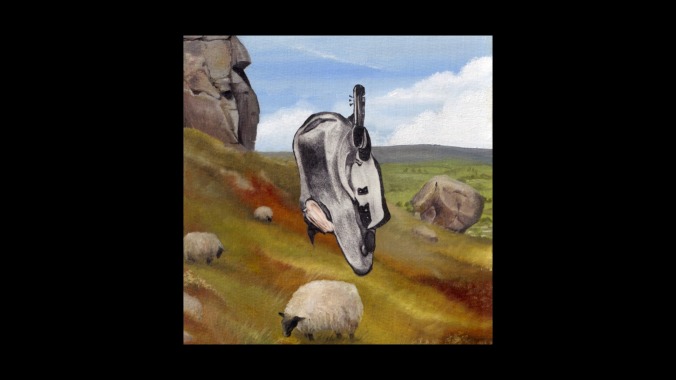English Teacher Search For an Identity on This Could Be Texas
The Leeds quartet’s debut album captures a modern duality of feeling, alternating between blistering fury and lackadaisical resignation.

There has been no shortage of much hyped post-punk bands to emerge in Britain in recent years—with acclaimed acts like Squid, Dry Cleaning, shame and Yard Act springing to mind immediately. For some, it would appear we long ago reached an over saturation point for these bands. Abigail Morris, of another buzzed about British band The Last Dinner Party, opined earlier this year: “People don’t want to listen to post-punk and hear about the cost of living crisis any more.” But such criticisms don’t seem to have deterred newcomers to the genre, nor do they seem to have dampened the feverish excitement of the British music press at the genre’s revival. Certainly these criticisms did not deter English Teacher, the British quartet who made a name for themselves with a handful of singles and nothing more over the last year-and-change.
Like most recent sensations in post-punk, English Teacher capture a very modern duality of feeling; alternating between blistering fury and lackadaisical resignation. One minute they’re painting a devastating portrait of austerity Britain on “Broken Biscuits,” documenting splitting prescriptions and breaking the bank to replace a new pair of shoes. The next, lead singer Lily Fontaine drolly confesses to directionlessness on “Mastermind Specialism” and lists off radically different career paths ( “Singer, porn star, writer, thief”), sounding unimpressed and uninterested in them all.
But the band also has a bleeding heart that they’re not afraid to showcase in their music. Fontaine, whose lyrics are informed by her experience growing up as a young Black woman in Tory Britain, demonstrates an appreciation of the personal being political, and she imbues her music with a distinct loveability. Despite support from swathes of the British music press and being signed by Island Records (Coi Leray, Drake, Hozier), English Teacher still feel like the underdog band whose success you can’t help but root for.
-

-

-

-

-

-

-

-

-

-

-

-

-

-

-

-

-

-

-

-

-

-

-

-

-

-

-

-

-

-

-

-

-

-

-

-

-

-

-

-








































